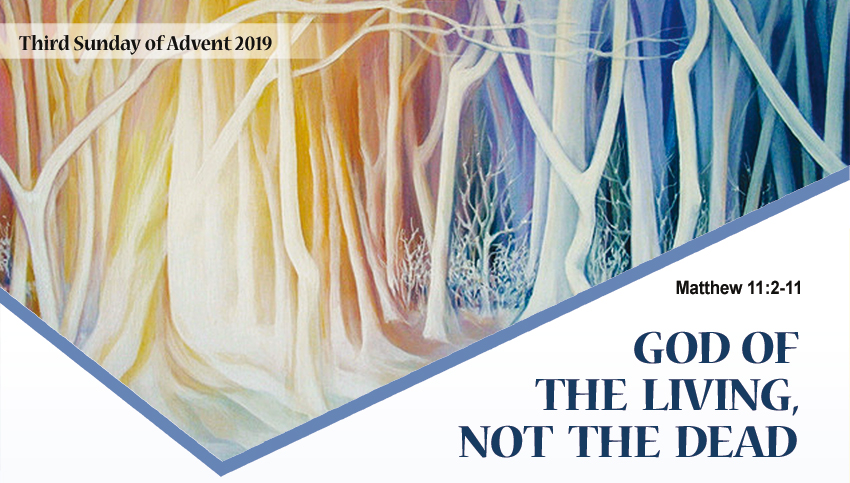John the Baptist, the greatest of the prophets, has doubts and asks: “Are you the one who is to come?” John, a man of the Old Testament, was formed in that school in which God is not only the God of the living, but also of the dead, in the sense that he can also mete out death, burning the bad and rewarding the good.
The God of the prophet John already has his axe in hand, laying it at the root of those trees that do not bear fruit, so as to then toss them into the unquenchable fire.
Now, faced with Jesus, the presumed long-awaited Messiah, the one who should be the living representative of God himself, it is legitimate that the Baptist is thrown into crisis, asking: Are you really the One we’ve been expecting?
It is possible that your God is only the God of the living and not the dead. How can it be that he does not uproot the wicked, but blesses them with sun and rain? Why is it that he no longer manifests his omnipotence by means of ten harsh afflictions, but instead by means of ten extraordinary healings, most of them to the benefit of unlikely people? What kind of God do you have?!
Jesus of Nazareth reveals a completely different God–One who is merciful toward the poor, forgives the unforgivable, loves those who do not deserve it and, above all, does not sweep the streets clean of the ones who are finding it hard to bear fruit. He patiently waits a year and then another one, taking care of these individuals every day, with the hope typical of lovers.
From the book: Ogni storia è storia sacra by Paolo Scquizzato, FSP Editions 2019
The Spirit of the Lord God is upon me.
He has sent me to bring good news to the oppressed.

